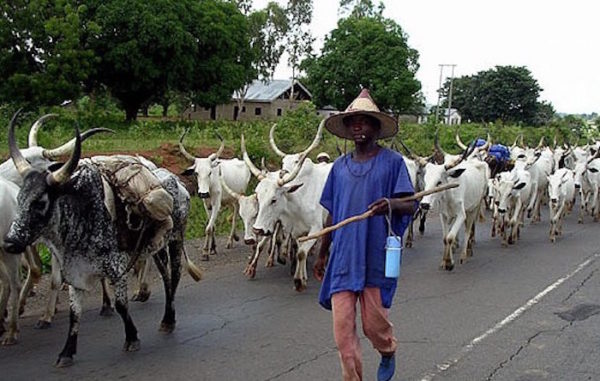Nomadic herdsmen were accused of killing at least 18 people, including two priests in Benue, central Nigeria on Tuesday. But there are unanswered questions about who was really behind the attack.
Tuesday’s attack in Mbalom, south of Makurdi, the capital, appeared at first sight to be the latest outbreak of retributive bloodshed between cattle herdsmen and farmers.
Recent months have seen an escalation in the decades-old dispute over fertile land and water that has left thousands dead and heaped pressure on Nigeria’s government to act.
On Wednesday, 11 ethnic Hausa traders were killed in Makurdi and two mosques were razed to the ground in violence sparked by the church attack.
The acting state governor said Benue was “under siege” while the Roman Catholic Diocese of Makurdi declared it was the goal of “jihadists to conquer Benue”.
But analysts said both the location and religious target of the attack were unusual and warned against generalising a complex conflict that is being increasingly politicised in the run-up to presidential polls in 2019.
“The key thing is that the pattern of Tuesday’s attack was different from prior attacks by the herdsmen,” Cheta Nwanze of SBM Intelligence, said.”So, to my mind at least, someone is taking advantage of the problem.”
“The key thing is that the pattern of Tuesday’s attack was different from prior attacks by the herdsmen,” Cheta Nwanze of SBM Intelligence, told AFP.
“So, to my mind at least, someone is taking advantage of the problem.”
Since 2017, 385 people have been killed in Benue state alone as a result of the herdsmen crisis, according to the Armed Conflict Location and Event Data (ACLED) project.
There was a sharp spike in the number of deaths at the beginning of this year, according to the US State Department-funded research.
Pressure is mounting on Nigeria’s President Muhammadu Buhari to contain the killings as the clashes over land escalate into a rift that is deepening along nominally religious lines.
Buhari has been accused of doing nothing to act because the cattle herders are his ethnic and religious kinsmen.
But in the absence of a strong police force and an efficient judicial system, there have been few arrests and even less information on the perpetrators.
“Herdsmen” have become the “ambiguous bogeyman”, said political analyst Chris Ngwodo, “an umbrella term for explaining the collapse of public order”.
– ‘Surprising’ attack –
Danladi Chiroma, from the Miyetti-Allah Cattle Breeders Association of Nigeria (MACBAN) which represents herders across the country, called Tuesday’s church attack “surprising”.
“No herders are allowed to graze in the area anymore. All herders are concentrated in the northern part of Benue,” he added.
“I’ve never heard of any incident in this area before then, that is so surprising such an attack could happen there.”
Danladi Chiroma, from the Miyetti-Allah Cattle Breeders Association of Nigeria (MACBAN) which represents herders across the country, called Tuesday’s church attack “surprising”.
“No herders are allowed to graze in the area anymore. All herders are concentrated in the northern part of Benue,” he added.
Chiroma said there was “obviously… a political agenda”.
Benue state lies in Nigeria’s so-called Middle Belt that separates the predominantly Muslim north from the largely Christian south.
The area has long been a hotbed of ethnic, sectarian and religious tensions between indigenous farming communities, who are mainly Christian, and the nomadic cattle herders, who are Muslim.
The crisis has shone a light on how Nigerian politicians play a vicious game of identity politics, pitting ethnicities against one other to drum up support, explained Idayat Hassan, director of the Centre for Democracy and Development West Africa.
“It’s an electioneering issue, it’s something to galvanise the campaign around,” she added.
“Ethnicity against ethnicity, villagers against villagers, it’s one of the biggest issues of the 2019 campaign.”
– Reprisal attacks –
The attack against the Hausa — who like the Fulani herders are Muslim and mainly from the north — underlines the dangers of inflammatory language and identity politics.
Rilwanu Adamu, an adviser to the Benue governor Samuel Ortom on Islamic affairs, said those targeted were neither farmers nor herders.
“We do our trade peacefully and take care of our families,” he said.
“That is why we don’t know why we should be targets,” he added, saying the community was now “living in fear”.
“There is so much tension ongoing in Makurdi right now,” added Garba Mohamed, who works at the Makurdi cattle market.
“They are targeting every Muslim person wether he’s Fulani or Hausa, they just go after you. There are no security forces to protect us.”
*Reported by AFP correspondents
(NAN)

